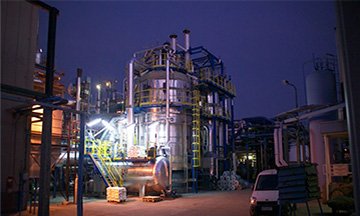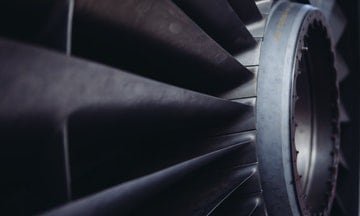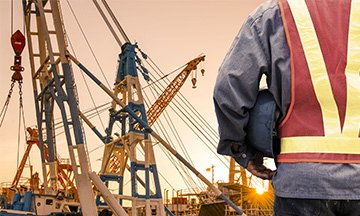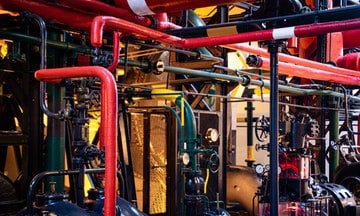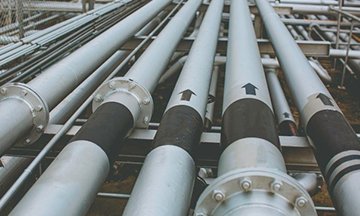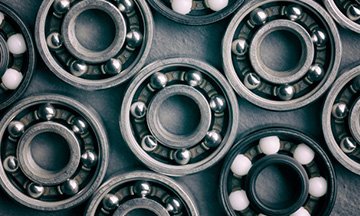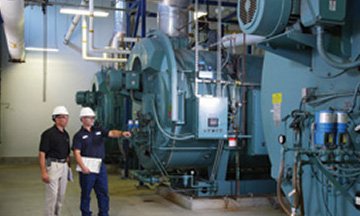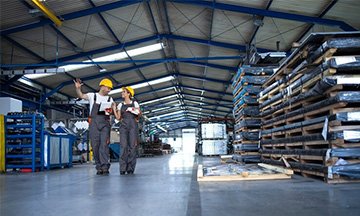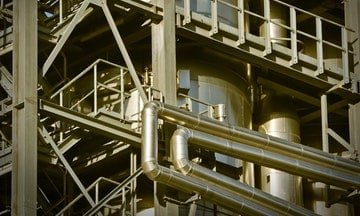Process Equipment Design and Controls for Operators & Engineers
| Date | Venue | Duration | Fees | |
|---|---|---|---|---|
| 29 Apr - 03 May, 2024 | Dubai | 5 Days | $4750 | Register |
| 12 May - 23 May, 2024 | Doha | 10 Days | $9150 | Register |
| 13 May - 17 May, 2024 | Dubai | 5 Days | $4750 | Register |
| 24 Jun - 28 Jun, 2024 | Dubai | 5 Days | $4750 | Register |
| 08 Jul - 12 Jul, 2024 | Dubai | 5 Days | $4750 | Register |
| 29 Jul - 02 Aug, 2024 | Kampala | 5 Days | $4950 | Register |
| 12 Aug - 16 Aug, 2024 | Dubai | 5 Days | $4750 | Register |
| 19 Aug - 30 Aug, 2024 | Nairobi | 10 Days | $9150 | Register |
| 02 Sep - 06 Sep, 2024 | Dubai | 5 Days | $4750 | Register |
| 07 Oct - 25 Oct, 2024 | Nairobi | 15 Days | $13500 | Register |
| 21 Oct - 25 Oct, 2024 | Dubai | 5 Days | $4750 | Register |
| 04 Nov - 08 Nov, 2024 | Johannesburg | 5 Days | $4950 | Register |
| 25 Nov - 29 Nov, 2024 | Dubai | 5 Days | $4750 | Register |
| 16 Dec - 20 Dec, 2024 | Dubai | 5 Days | $4750 | Register |
Course Overview
The mechanical reliability of process equipment and piping systems can only be attained if they are designed by knowledgeable engineers and utilised and maintained efficiently. How can organisations address the challenges of process design?
What is process equipment design?
The most effective equipment is designed based on precise and dependable predictions, as well as proper monitoring and control mechanisms. This training program will provide its participants with an all-inclusive combination of fundamentals, best practices. Delegates will realise real-world tools to enhance the capabilities and develop the performance of design. Operation, and maintenance technical professionals will bring value to their organisations and enhance safety and reliability of its plants.
What are engineering control measures?
These measures will be discovered in Zoe’s “Process Equipment Design and Controls for Operators & Engineers”.
This course also focuses on discussing mechanical engineering principles and other engineering techniques including inspection, monitoring, and condition evaluation, which enable mechanical engineers to design and maintain the equipment required by process engineers.
This Zoe training course will provide you with an introduction to the fundamentals of process engineering, mechanical engineering, and equipment and materials design.
Course Objectives
Upon completing this Process Equipment Design and Controls for Operators & Engineers training program successfully, participants will be able to:
- Study the different aspects of process design that impact process safety
- Implement a fundamentally safer design for the operation of the entire process plant
- Assess the mechanical reliability of process equipment
- Recognise the hazards related to process fluids in terms of their impact on material degradation
- Abide by the code requirements for sizing relief valves to handle relief streams
- Activate emergency de-pressuring systems (EDP) in case of fire and gas explosions
Training Methodology
This collaborative Process Equipment Design and Controls for Operators & Engineers training program will comprise the following training methods:
- Lectures
- Seminars & Presentations
- Group Discussions
- Assignments
- Case Studies & Functional Exercises
Like all our other training programs, this course also follows the ‘Do-Review-Learn-Apply’ model.
Organisational Benefits
Companies who nominate their employees to participate in this Process Equipment Design and Controls for Operators & Engineers training program can benefit in the following ways:
- Benefit from training your employees on the definition and importance of mechanical information
- Understand in detail, the Hydraulic System guidelines
- Learn and apply standards in equipment identification, equipment design features analysis and equipment performance calculations
- Learn the nuances of safe operation and monitoring of equipment, and their maintenance
- Delegates will be able to apply the gained knowledge through this course and practice skills and that will impact their respective companies
- Maintain better organisational safety records
Personal Benefits
Individuals who participate in this Process Equipment Design and Controls for Operators & Engineers training program can gain from it in the following ways:
- Enhance your career opportunities across worldwide industries of oil and gas, construction, aeronautics, automobile, etc.
- Secure a relevant job anywhere in the world with the right knowledge in Hydraulic Systems
- Get promoted in your current job in the Hydraulic System field
- Acquire the professional skills and knowledge required to accomplish your tasks with optimal competence and accuracy
- Master the knowledge and techniques to see the future of an effective Hydraulic System process
- Discover how to work well with your machines and the risks of not being able to operate them accurately
- Contribute to your organisation strategically with respect to equipment design and controls
- Get an opportunity to work through hands-on exercises in detail
- Will gain the skills needed to facilitate a Hydraulic System study
- Gain the skills to plan, manage, facilitate, and scribe for a Hydraulic System project
Who Should Attend?
This Process Equipment Design and Controls for Operators & Engineers training program would be suitable for:
- Process engineers
- Project engineers and HSE professionals
- Petroleum engineers
- Maintenance & production engineers
- R&D chemists
- Plant chemists
- Technical professionals accountable for maintenance and repair of equipment
- Technical professionals working with risk assessment and integrity analysis
- Specialists involved in inspection and maintenance and repair
Course Outline
Module 1: Fundamentals of Process Engineering
- Mass and energy balances
- Reactor types
- Process & Engineering Diagrams
- Flammability
- Electrical area classification
- Risk Management and Hazard Studies
Module 2: Overview of Safety in Process Design
- Definition of Safety in Process Design
- The Components of Process Safety
- Risk Identification and Safety Analysis
- Process Hazard Analysis: HAZOP, LOPA, FMEA
- Hazards Associated with Specific Plant Systems
- Elimination of Hazards through Process Design
- Obstruction of Human Error with Process Control and Monitoring Techniques
Module 3: Inherently Safer Design
- What is Inherently Safer Design?
- Pre-Design and Design Phases
- Materials of Construction and Optimised Fabrication
- Process Fluids and Chemical Reaction Hazards
- Corrosion, Erosion, and Material Degradation
- Leakage and Loss of Primary Containment
- Dispersion of Hydrocarbon Release
- Flammability of Chemicals
Module 4: Crude Oil Processing Equipment Design & Sizing
- Separator’s Technology
- Operating Parameters and Operations Problems
- Elements Of Calculation Standards
- Sizing A 2-Phase And 3-Phase Separator
Module 5: Gas Processing Equipment Design & Sizing
- Column’s Technology
- Selection Criteria
- Operating Parameters
- Elements Of Sizing
- Column Troubleshooting
Module 6: Safety of Process Equipment
- Hazard Associated with Process Equipment
- Safety Considerations in Reactor Design
- Design Procedure for Safety of:
- Pressure Vessels
- Storage Tanks
- Reactors
- Heat Exchangers
- Venting of Tanks and Vessels
- Standards and Best Practices
- Piping System Design and Safety
- Design of Piping System Accessories
- Assessment of Material Degradation
- Monitoring, Testing, and Inspection (NDT)
Module 7: Design of Pressure Relief Systems
- Design of Safety Valves
- Operation of Pressure Relief System
- Sizing of Pressure Relief Systems Relief Loads
- Pressure Relief Valves vs. Rupture Discs
- Codes, Standards and Best Practices
- Specifics of Pressure Relief Systems
- Process Plant Disposal Systems
- Disposal Hazards and Environmental Factors
Module 8: Process Monitoring And Control
- Safety Instrumented Systems
- Process Plant Monitoring and Control Systems
- Emergency De-pressuring Systems (EDP)
- Prevention of Fire and Gas or Dust Explosions
- Safety Deliberations in Equipment Spacing and Plant Layout
- Supervision of Change and Integrity Operation Window
- Plant Equipment Inspection and Maintenance Procedures
